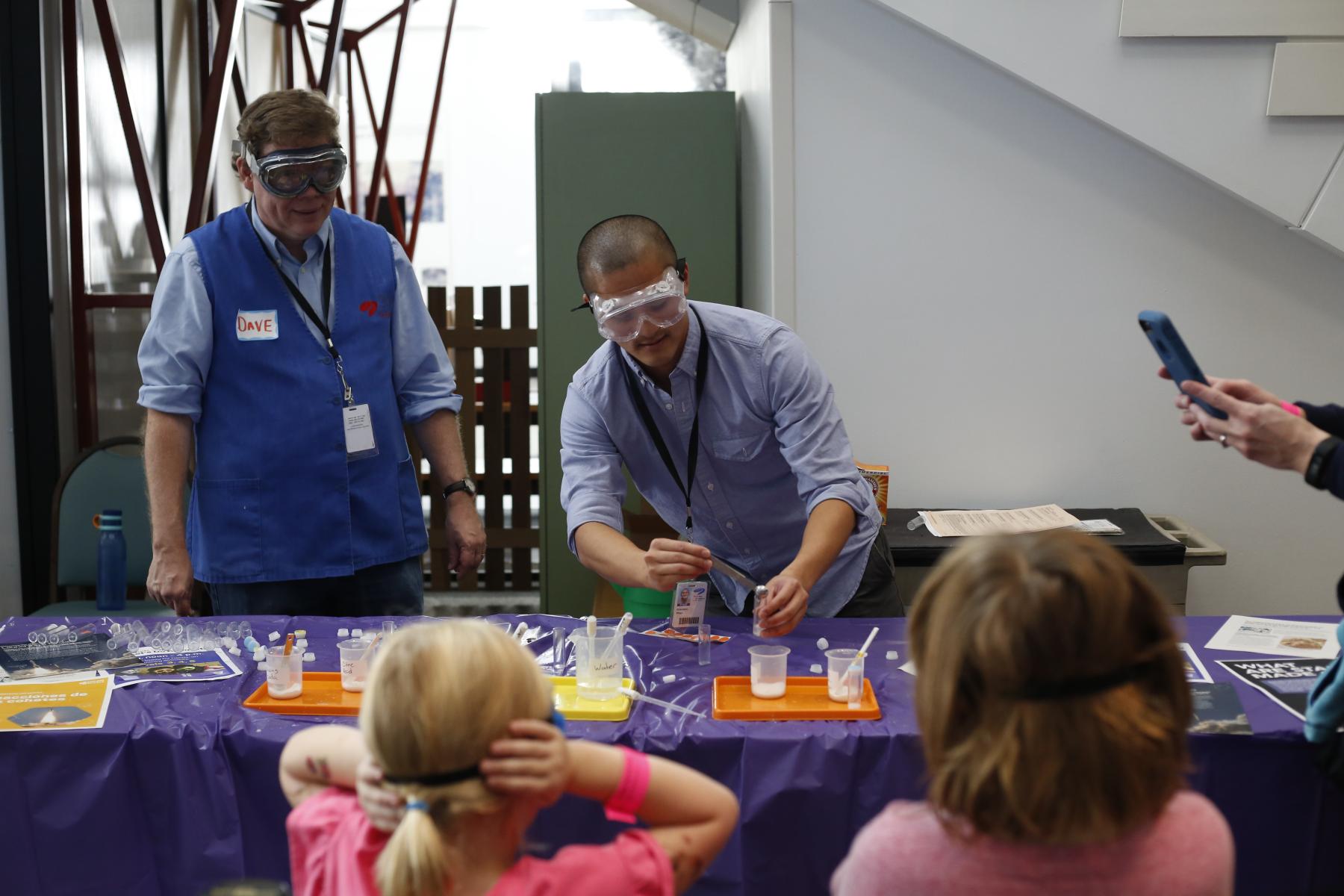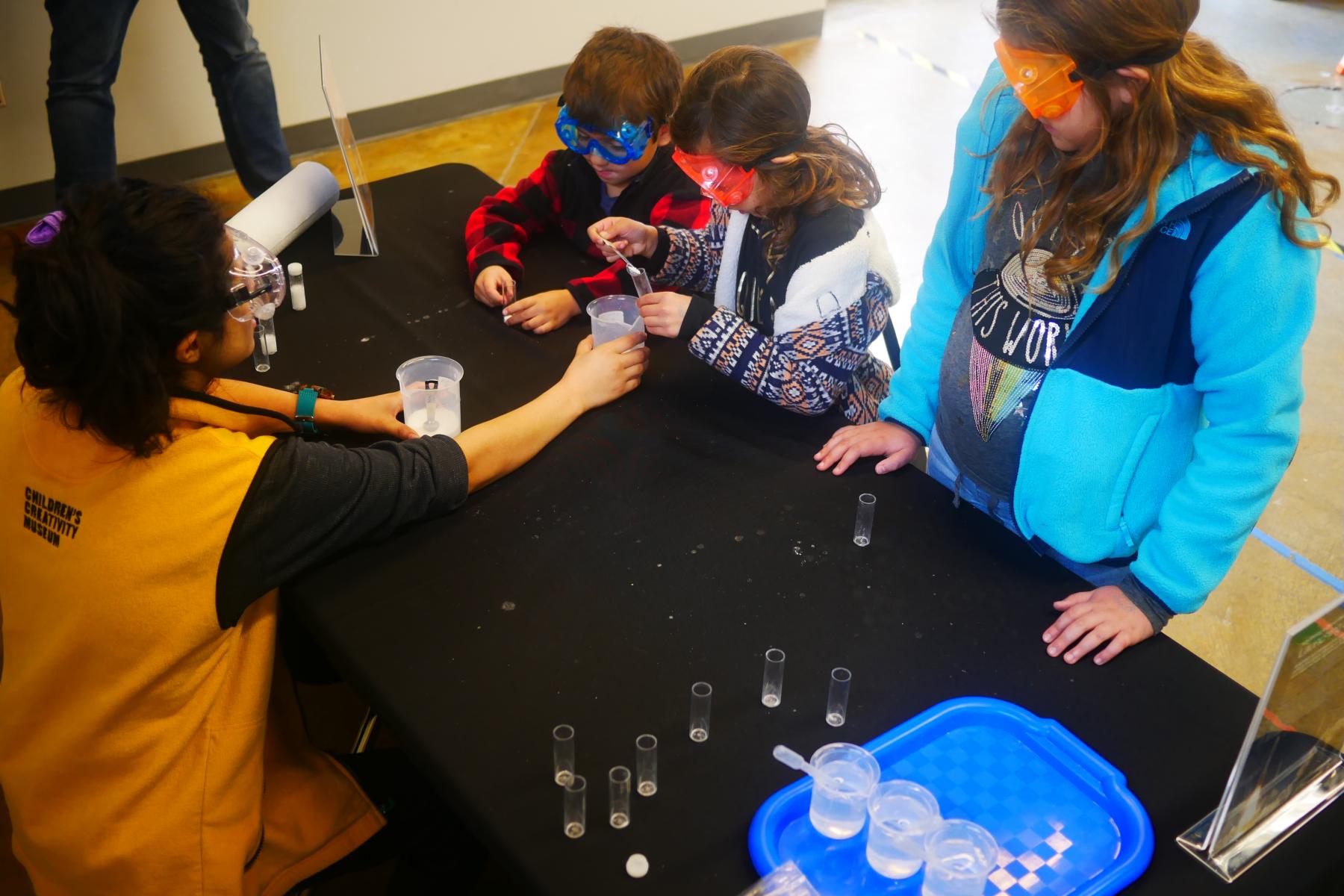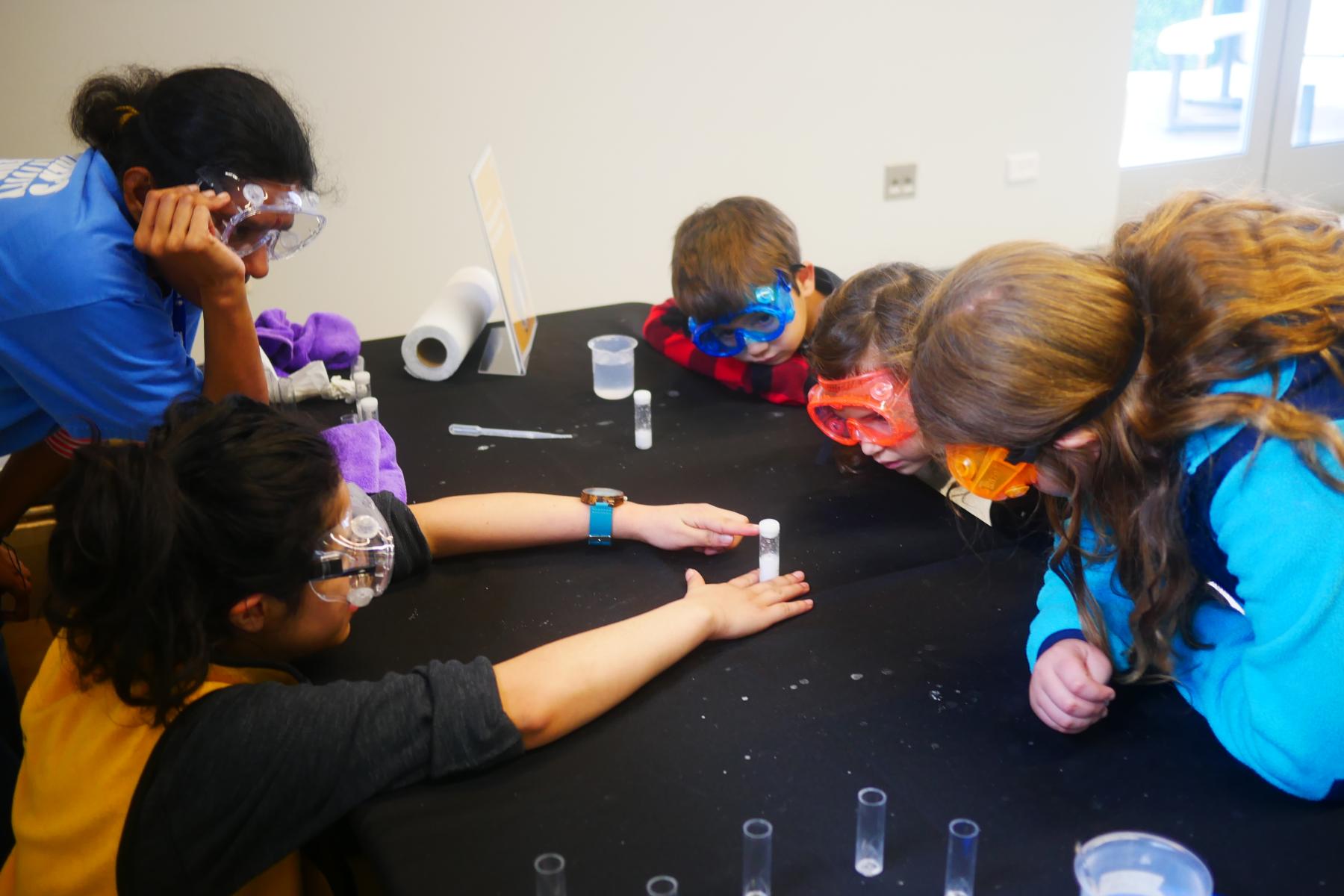DESCRIPTION
The "Rocket Reactions" activity is an exciting way to learn about how materials interact, behave, and change. Participants make little baking soda and vinegar "rockets," launching plastic caps into the air, and experimenting to discover the best mix of fuel for their rocket.
DESCRIPTION
The "Rocket Reactions" activity is an exciting way to learn about how materials interact, behave, and change. Participants make little baking soda and vinegar "rockets," launching plastic caps into the air, and experimenting to discover the best mix of fuel for their rocket.
TRAINING VIDEOS
OBJECTIVES
BIG IDEA
An important part of the process of chemistry is to experiment and try different things over and over.
Chemists study how different materials behave and change, and how materials interact with each other.
LEARNING GOALS
Learners will develop positive attitudes toward chemistry:
- Learners will increase their feelings of interest in chemistry through observation of phenomena and experimentation.
- Learners will increase their understanding of the relevance of chemistry by exploring connections to everyday life.
- Learners will increase their sense of self-efficacy related to chemistry through hands-on interaction with real tools.
DOWNLOAD FILES
- Rocket Reactions activity sign (PDF)
- Rocket Reactions activity guide (PDF)
- Rocket Reactions facilitator guide (PDF)
- Rocket Reactions space info sheet (PDF)
- Citric acid Safety Data Sheet (PDF)
- Sodium bicarbonate Safety Data Sheet (PDF)
- Rocket Reactions activity guide (Spanish) (PDF)
- Rocket Reactions activity sign (Spanish) (PDF)
- Rocket Reactions space info sheet (Spanish) (PDF)
Credits
Developed for the NISE Network with funding from the National Science Foundation under Grant Number DRL 1612482. Any opinions, findings, and conclusions or recommendations expressed in this material are those of the author(s) and do not necessarily reflect the view of the National Science Foundation. Any opinions, findings, and conclusions or recommendations expressed in this product are those of the authors and do not necessarily reflect the views of the Foundation.
Creative Commons Attribution Non-Commercial Share Alike 3.0 United States (CC BY-NC-SA 3.0 US).
View more details

NISE Network products are developed through an iterative collaborative process that includes scientific review, peer review, and visitor evaluation in accordance with an inclusive audiences approach. Products are designed to be easily edited and adapted for different audiences under a Creative Commons Attribution Non-Commercial Share Alike license. To learn more, visit our Development Process page.





